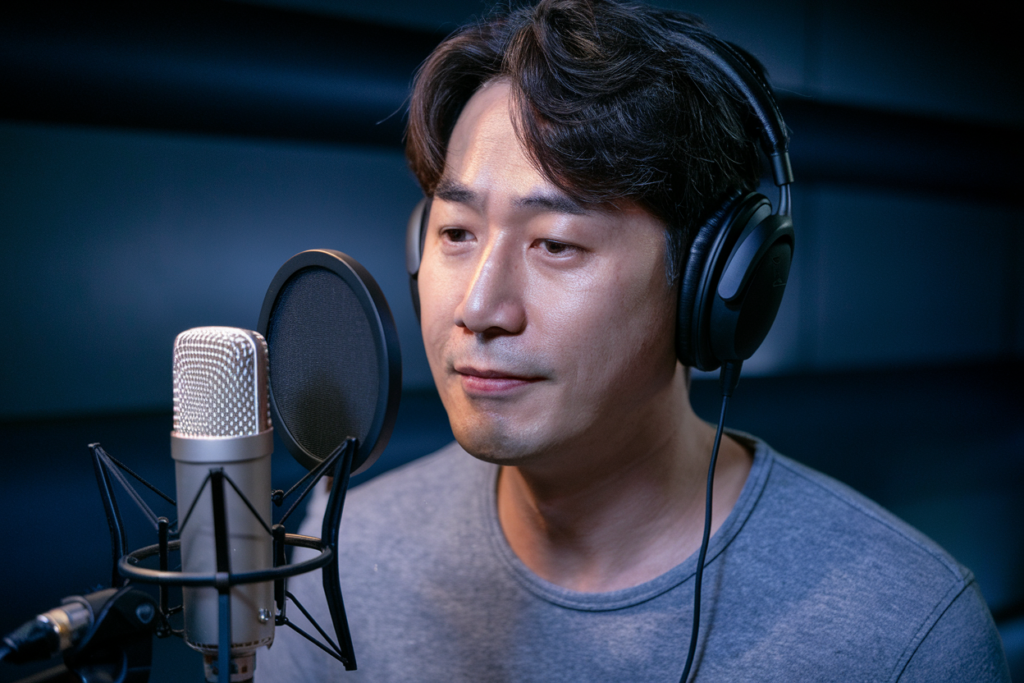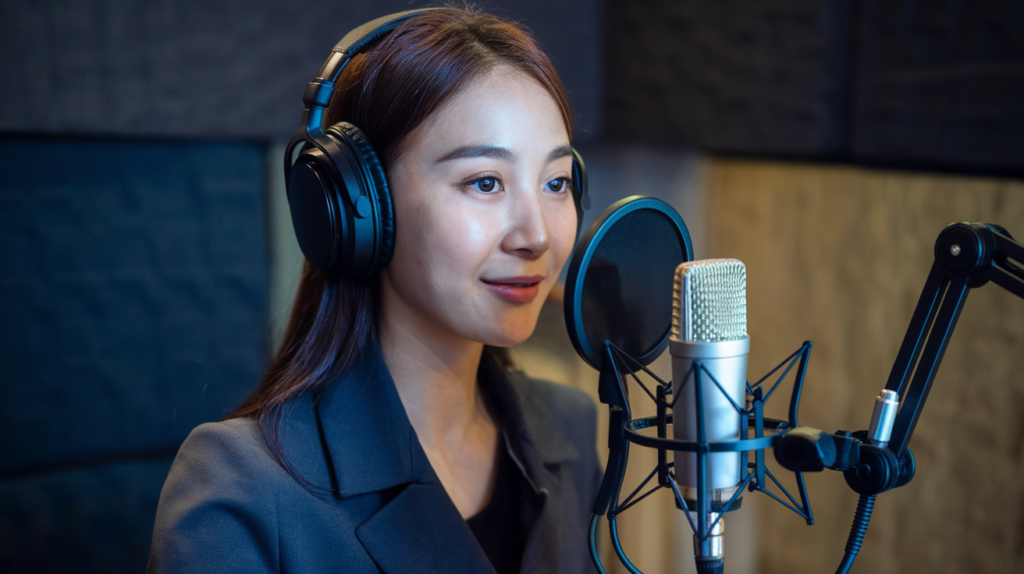Key Takeaways
- Seoul Korean’s Dominance: The dialect is favored in voice acting due to its clarity and expressiveness, making it ideal for engaging storytelling across various media.
- Cultural Significance: Seoul Korean reflects Korea’s rich history and cultural evolution, enhancing authenticity in character portrayal through native speakers.
- Global Accessibility: This dialect is easily understood by global audiences, fostering deeper emotional connections between characters and viewers.
- Standardization Benefits: Using Seoul Korean provides consistency in pronunciation and grammar, ensuring quality performances that appeal universally.
- Challenges of Diversity: While popular, reliance on Seoul Korean may risk sidelining regional dialects; balancing standardization with inclusivity is essential for authentic representation.
- Future Trends: As demand for skilled voice artists grows, incorporating technological advancements alongside diverse voices will enhance storytelling experiences.
Ever wondered why Seoul Korean has become the go-to choice for voice acting? With its unique blend of clarity and expressiveness, it’s no surprise that this dialect dominates the industry. As more content creators seek to capture authentic emotions in their projects, understanding the appeal of Seoul Korean can give you an edge.
In a world where storytelling is king, choosing the right voice can make or break your project. Whether you’re producing animations, video games, or commercials, knowing why Seoul Korean stands out helps you connect with audiences on a deeper level. Dive into this article to discover how embracing this vibrant dialect can elevate your work and resonate with listeners everywhere.
Overview of Voice Acting in Korea
Voice acting in Korea thrives on the unique qualities of Seoul Korean, which captures attention with its clarity and expressiveness. As a voice artist or content creator, recognizing the significance of voiceovers can greatly enhance storytelling across various media. Whether you’re working on animations, video games, or commercials, selecting the right voice talent is crucial for engaging your audience.
Korean voice actors bring a rich emotional depth to their performances. They skillfully adapt their tone and delivery based on context, making every character resonate with listeners. This adaptability is vital in today’s competitive landscape where audiences expect genuine connections through relatable characters.
Furthermore, the growing demand for high-quality voiceover work reflects broader trends within entertainment industries both locally and globally. You might wonder why Seoul Korean has become the default choice among many content producers. The answer lies not only in its cultural relevance but also in how it enhances narrative experiences.
Understanding this dynamic opens up opportunities for you as a potential client seeking exceptional voice over talent. By collaborating with skilled voice artists familiar with these nuances, projects gain authenticity that captivates viewers and players alike. Embracing this trend can elevate your content and create lasting impressions that keep audiences coming back for more.
The Rise of Seoul Korean in Voice Acting
The popularity of Seoul Korean in voice acting continues to grow, driven by its clarity and expressiveness. This dialect captures attention, making it a go-to choice for various media, including animations and video games.
Historical Context
Seoul Korean has deep roots within the rich tapestry of Korea’s history and culture. As the capital city, Seoul emerged as a cultural hub where language evolved significantly over time. In the last few decades, as South Korea embraced global trends, this dialect gained prominence in entertainment. Its widespread use in television dramas and movies set the stage for its rise in voiceovers. Many content creators now recognize that employing native speakers can enhance authenticity and connect with audiences on a personal level.
Influence of Pop Culture
Pop culture plays an essential role in propelling Seoul Korean into the spotlight within the voice acting industry. K-dramas, K-pop music videos, and animated series have captivated international audiences, showcasing talented voice actors who embody relatable characters. As these forms of entertainment gain traction worldwide, they introduce viewers to authentic language styles and emotional nuances inherent to Seoul Korean. Your projects can benefit from incorporating this vibrant dialect; it’s not just about storytelling—it’s about creating connections that resonate deeply with listeners globally.
By leveraging the unique qualities of Seoul Korean through skilled voice artists, you ensure your content stands out while engaging your audience effectively.
Advantages of Using Seoul Korean
Using Seoul Korean in voice acting offers distinct advantages that enhance storytelling across various media. Its clarity and expressiveness ensure that your project resonates with audiences, making it a top choice for content creators.
Accessibility for Global Audiences
Seoul Korean is accessible to global audiences due to its widespread recognition and clear articulation. Many listeners find this dialect easy to understand, even if they aren’t fluent in the language. This accessibility fosters deeper connections between characters and viewers, as emotions translate effectively through well-delivered voiceovers. By choosing Seoul Korean, you cater to a diverse audience eager for relatable stories.
Standardization of Language
Seoul Korean serves as a standardized form of the language, providing consistency in pronunciation and grammar. This uniformity benefits voice actors by reducing regional variances that can confuse listeners. When you select voice talent who specialize in this dialect, you ensure quality performances that maintain coherence throughout your project. A consistent language standard elevates the professionalism of your content while enhancing its overall appeal to both local and international markets.
Challenges and Criticisms
Seoul Korean’s rise as a default in voice acting faces several challenges. These obstacles often spark discussions within the industry.
Regional Dialects
Regional dialects add richness to language but can complicate voiceovers. While Seoul Korean offers clarity, it lacks the unique flavors of other regional variations. Some argue that using only Seoul Korean risks sidelining diverse voices from different areas of Korea. This could lead to a homogenized sound in media, potentially alienating audiences who identify with those regional nuances. Balancing standardization with representation remains crucial for voice artists aiming to connect authentically with varied listeners.
Cultural Representation
Cultural representation plays a vital role in storytelling through voiceovers. While Seoul Korean serves as an accessible choice for many productions, it may not fully capture the cultural depth of all characters or narratives. Critics point out that relying solely on this dialect might overlook important cultural contexts tied to specific regions or communities within Korea. A broader approach that includes various dialects can enhance authenticity and resonate more deeply with diverse audiences, ensuring that every story reflects its roots genuinely.
By addressing these challenges head-on, content creators can foster a more inclusive environment where every voice—whether it’s from Seoul or beyond—has its place in the spotlight.
Future of Seoul Korean in Voice Acting
Seoul Korean’s role in voice acting continues to expand, driven by its unique qualities that resonate well with audiences. Its clarity and expressiveness set it apart, making it a prime choice for various media platforms. As you explore projects requiring engaging voiceovers, consider how Seoul Korean can enhance storytelling.
The demand for skilled voice artists fluent in Seoul Korean grows as content creators recognize its advantages. This dialect not only appeals to local audiences but also connects with international viewers. You might wonder how this impacts your work—by opting for voice talent proficient in Seoul Korean, you ensure authenticity and emotional depth in performances.
Technological advancements also play a part in shaping the future of voice acting. Innovations like AI-driven tools are streamlining production processes while maintaining high-quality output. These developments allow voice actors to showcase their skills more efficiently, making it easier for you to find the right fit for your project.
However, it’s essential to acknowledge the importance of diversity within the field. While Seoul Korean serves as a standard form of expression, incorporating regional dialects adds richness and authenticity to narratives. You’ll want your characters’ voices to reflect their backgrounds accurately; exploring varied accents can create a more relatable experience for diverse audiences.
Embracing Seoul Korean as the default in voice acting offers numerous benefits while still allowing room for cultural representation and variety. As trends evolve and audience preferences shift, staying informed about these dynamics will help you craft compelling stories that resonate deeply with listeners.
Conclusion
Seoul Korean’s ascent in the voice acting realm reflects its clarity and emotional depth. As you explore storytelling through this dialect, you’ll find it enhances connections with audiences across various media.
While leveraging Seoul Korean can elevate your projects, it’s crucial to remain mindful of the richness offered by regional dialects. Incorporating diverse voices will not only enrich narratives but also ensure authentic representation.
As you move forward in your creative endeavors, consider how blending these elements can create compelling stories that resonate on deeper levels. Embracing both Seoul Korean and regional variations allows for a more inclusive approach that engages all listeners effectively.
Frequently Asked Questions
What is Seoul Korean in voice acting?
Seoul Korean refers to the standardized dialect of the Korean language used predominantly in voice acting. Its clarity and expressiveness make it a popular choice for storytelling across various media, including animations, video games, and commercials.
Why is Seoul Korean preferred in the voice acting industry?
Seoul Korean’s clear articulation and emotional depth allow voice actors to connect with audiences effectively. This adaptability resonates well with listeners, making it a favored option among content creators seeking authenticity and engagement.
How does pop culture influence Seoul Korean’s popularity?
The rise of K-dramas and K-pop has showcased many talented voice actors using Seoul Korean, introducing international audiences to its unique language style. This exposure has significantly boosted its prominence in the entertainment industry.
Are there any challenges associated with using Seoul Korean in voice acting?
Yes, while Seoul Korean offers advantages like consistency, critics argue that relying solely on it may overlook regional dialects’ richness. This could result in a homogenized sound that lacks cultural depth and variety in storytelling.
How can diversity improve voice acting narratives?
Incorporating various regional dialects enriches narratives by capturing diverse cultural backgrounds. A broader approach ensures authentic representation of characters, allowing stories to resonate more deeply with varied audiences while maintaining inclusivity.







